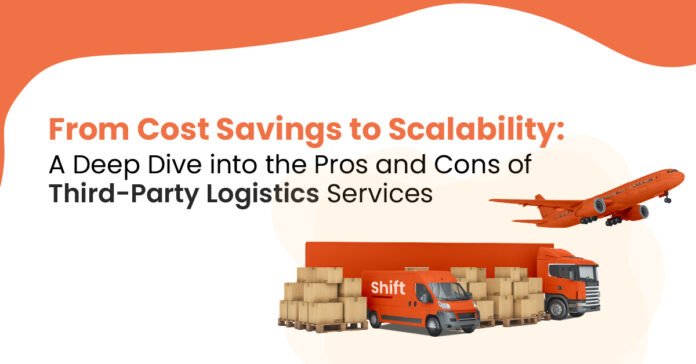In the fast-paced world of business, the efficiency of shipping, logistics, and order fulfillment can be a game-changer for companies, especially in a vibrant market like India. Third-party logistics (3PL) services have emerged as a vital tool for businesses looking to streamline these aspects. However, like any strategic decision, opting for 3PL comes with its own set of advantages and challenges. This blog provides a comprehensive analysis of the pros and cons of third-party logistics services, helping Indian businesses make informed decisions.
Pros of Third-Party Logistics Services:
1. Cost Efficiency: One of the most significant advantages of 3PL is cost savings. These providers have specialized expertise in logistics, which allows for more efficient route planning, inventory management, and transportation, leading to reduced overhead costs for businesses.
2. Scalability and Flexibility: 3PL services offer scalability to businesses. During periods of increased demand, such as festive seasons, 3PLs can quickly adjust to handle larger volumes, providing businesses with the flexibility to scale operations up or down as needed.
3. Access to Advanced Technology: Many 3PL providers use state-of-the-art logistics technology. By partnering with them, businesses gain access to these technologies without the hefty investment, enhancing tracking, reporting, and inventory management.
4. Focus on Core Competencies: Outsourcing logistics allows businesses to focus on their core competencies. By leaving logistics to the experts, companies can concentrate on product development, marketing, and other critical aspects of their business.
5. Market Expansion Support: 3PL services can facilitate easier expansion into new markets by handling the complexities of local and international shipping regulations, customs brokerage, and freight forwarding.
Cons of Third-Party Logistics Services:
1. Loss of Control: When logistics are outsourced, companies may feel a loss of control over this aspect of their operations. This can be particularly challenging for businesses that have specific, unique logistics needs.
2. Dependency Risks: Reliance on a 3PL provider can be risky if the provider faces disruptions, financial difficulties, or fails to meet service expectations. This dependency can become a bottleneck for businesses.
3. Hidden Costs and Complexity: While 3PL can be cost-effective, some businesses may encounter hidden costs or complex pricing structures, leading to unpredicted expenses.
4. Limited Customization: 3PL providers typically offer standardized services, which might not always align perfectly with a company’s specific needs, leading to a potential compromise in service customization.
5. Communication Challenges: Effective communication is crucial in logistics. Working with a third party can sometimes lead to communication gaps or delays, impacting the efficiency of logistics operations.
Unveiling the Role of Third-Party Logistics Services with Shift Logistics
In the dynamic realm of logistics, the exploration of third-party logistics services reveals a nuanced landscape of advantages and challenges. From cost savings to scalability, businesses must carefully weigh the pros and cons to align their strategies with evolving market demands.
Embracing this complexity is Shift, a forward-thinking logistics partner that not only addresses traditional concerns like cost efficiency but also pioneers scalable solutions. By leveraging cutting-edge technology and a customer-centric approach, Shift is shaping the future of logistics, demonstrating that a strategic partnership with a third-party service provider can be a transformative force in navigating the challenges of a rapidly evolving supply chain landscape. As businesses increasingly look to optimize their logistics operations, Shift stands out as a beacon, exemplifying how innovation and adaptability can redefine the paradigm of third-party logistics services.




